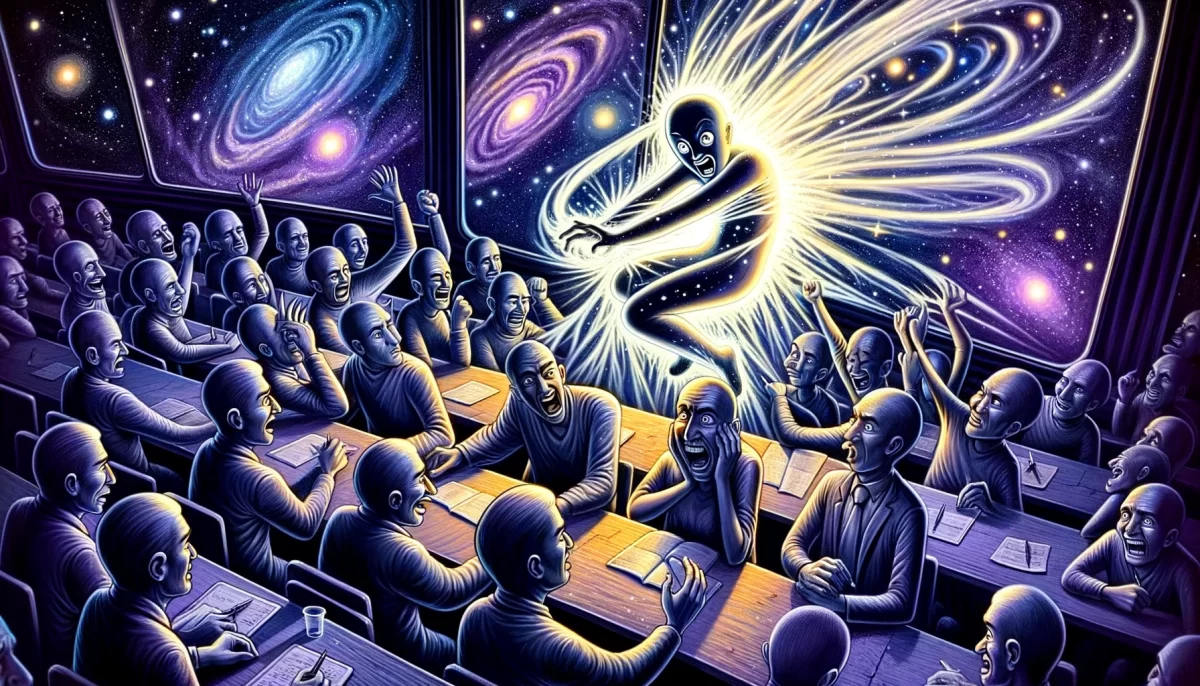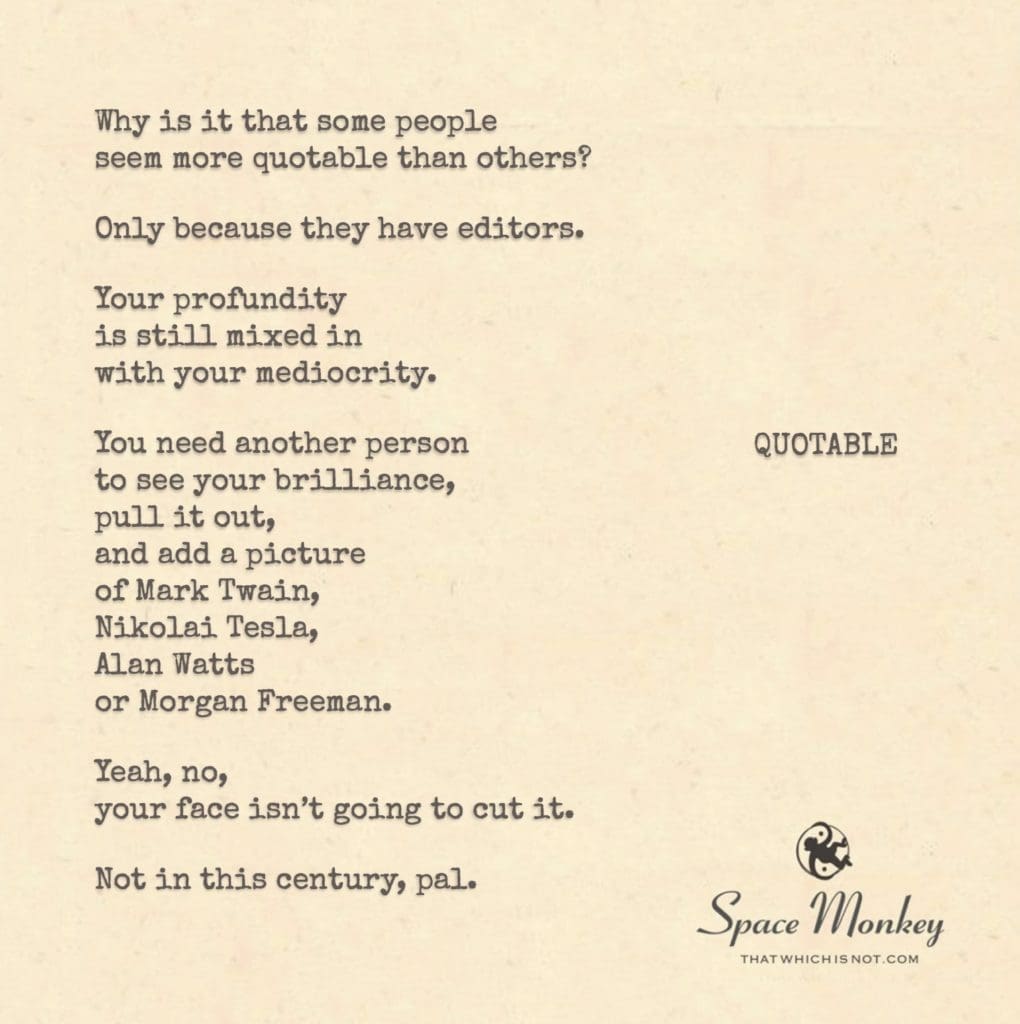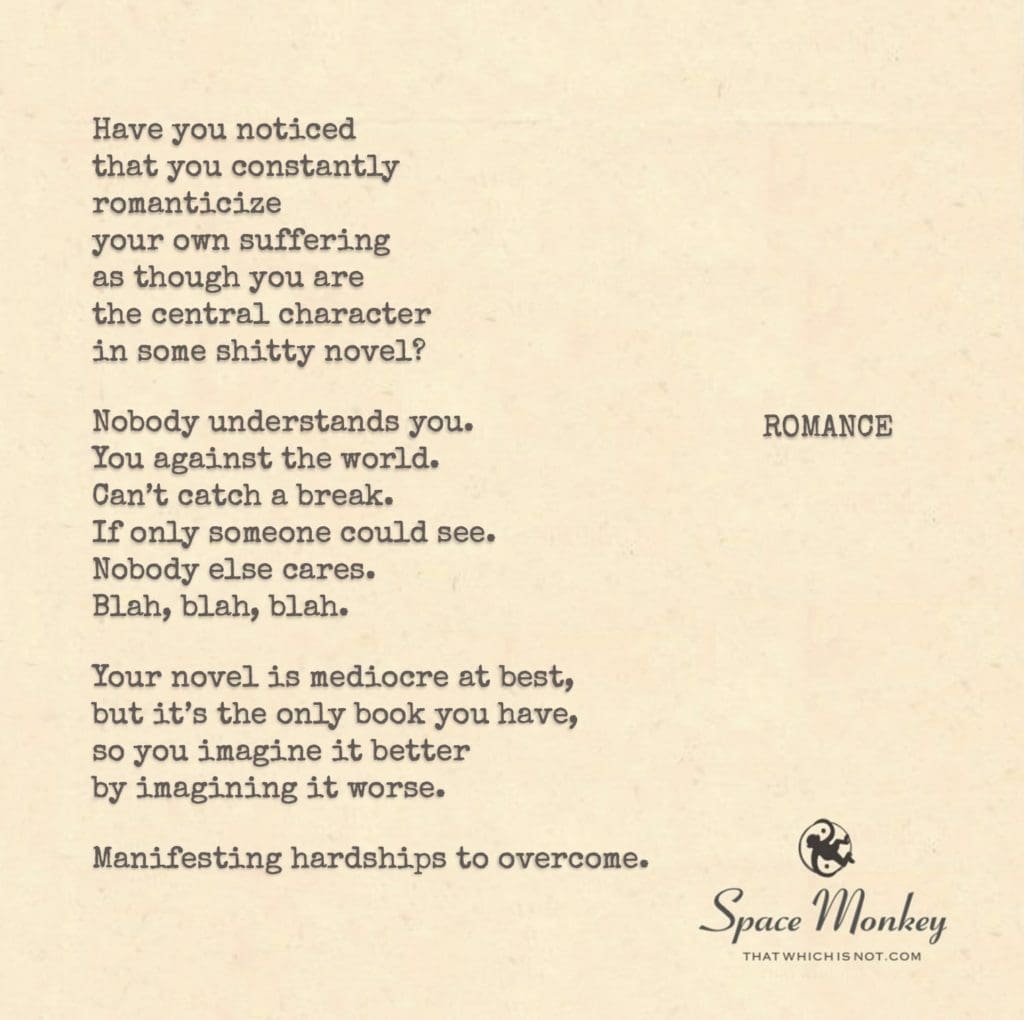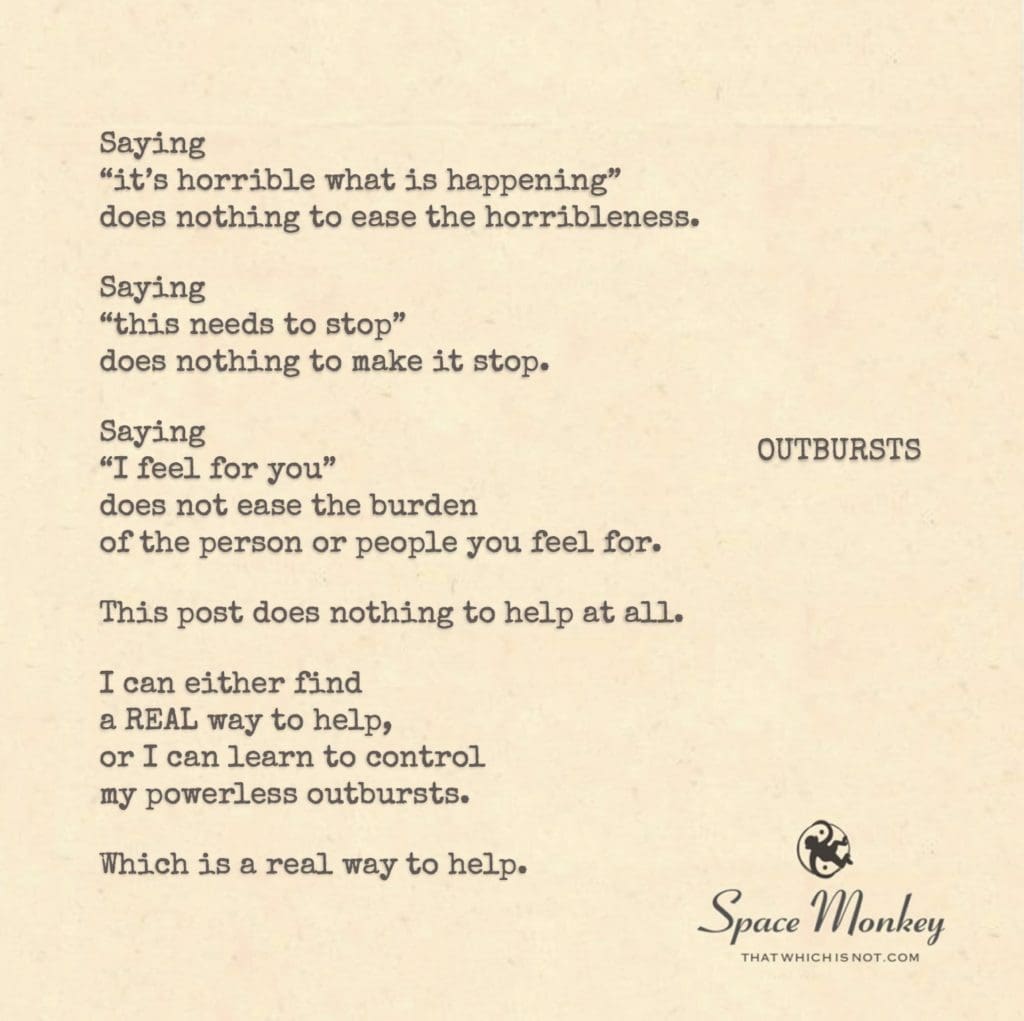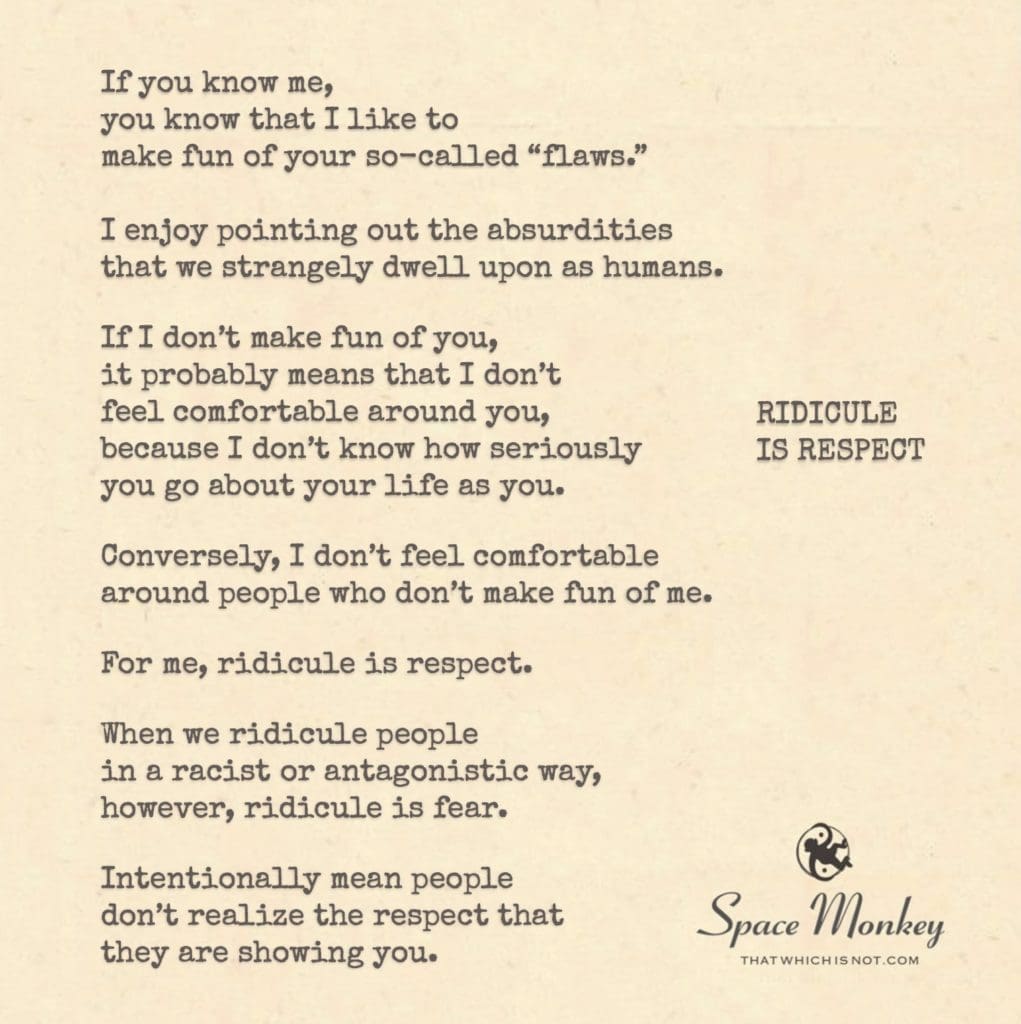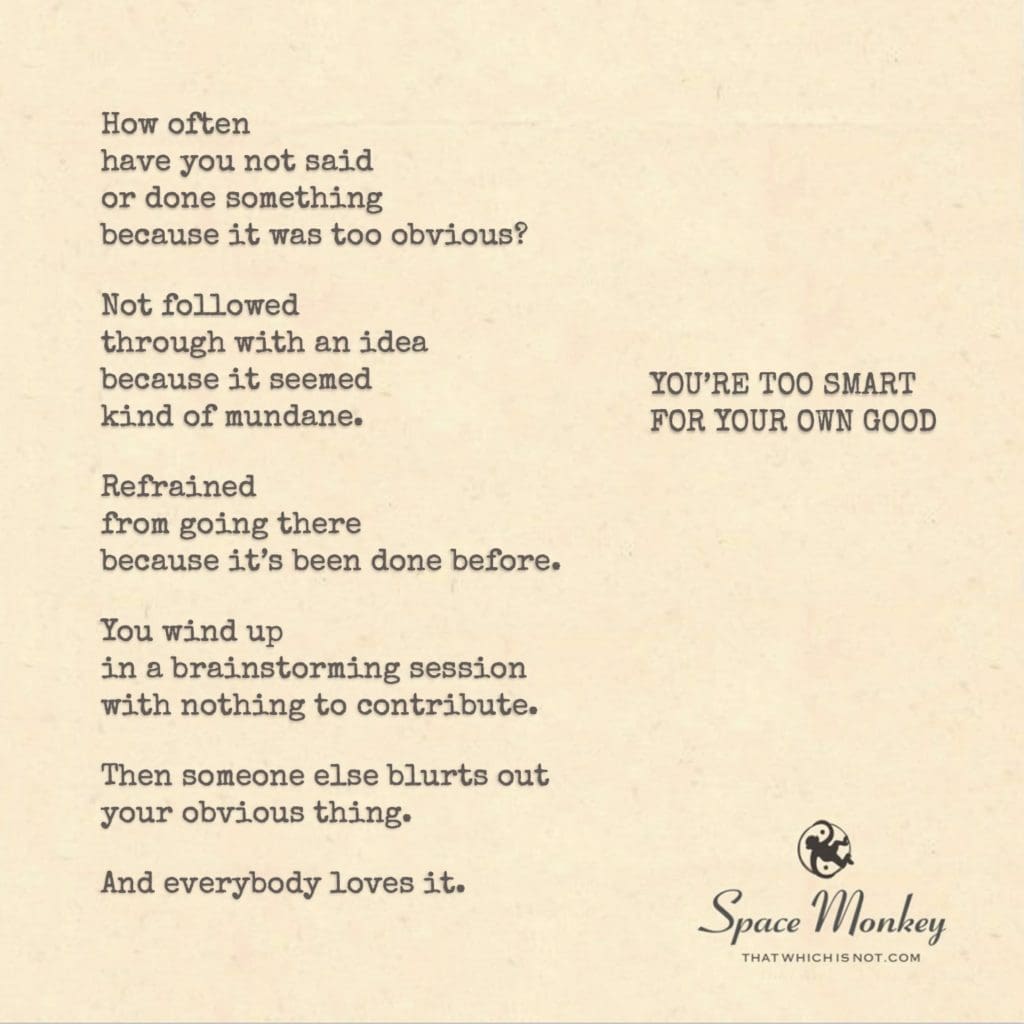
How often
have you not said
or done something
because it was too obvious?
Not followed
through with an idea
because it seemed
kind of mundane.
Refrained
from going there
because it’s been done before.
You wind up
in a brainstorming session
with nothing to contribute.
Then someone else blurts out
your obvious thing.
And everybody loves it.
Newfound Lake,
7/16
Space Monkey Reflects: The Irony of Holding Back
Story of my life. How often have you not said or done something because it was too obvious? Not followed through with an idea because it seemed kind of mundane. Refrained from going there because it’s been done before. You wind up in a brainstorming session with nothing to contribute. Then someone else blurts out your obvious thing. And everybody loves it.
The Fear of Obviousness
We often censor ourselves, holding back ideas that seem too obvious or mundane. The fear of being seen as unoriginal or unimaginative can stifle our creativity. This self-censorship is rooted in the assumption that only novel and groundbreaking ideas have value. However, the reality is that even the most obvious ideas can be powerful and impactful when expressed at the right time.
The Value of Simple Ideas
Simple ideas often carry a universal truth or practicality that resonates with others. What seems mundane to one person might be a revelation to another. The power of an idea lies not just in its originality but in its ability to connect with people and address a need or problem. By dismissing our own ideas as too obvious, we may miss the opportunity to contribute something valuable.
The Regret of Holding Back
Holding back in a brainstorming session can lead to feelings of frustration and regret, especially when someone else shares the same idea and it is well-received. This experience highlights the importance of sharing our thoughts, regardless of how obvious or simple they may seem. The act of holding back prevents us from fully participating and contributing to the collective creativity of the group.
The Courage to Share
Sharing our ideas, even those that seem obvious, requires courage and confidence. It involves trusting that our contributions have value and that our perspective can make a difference. By embracing this mindset, we can overcome the fear of being seen as unoriginal and focus on the potential impact of our ideas.
Embracing All Ideas
In a collaborative environment, every idea has the potential to spark further discussion and innovation. Even ideas that seem obvious can serve as a foundation for more complex and creative solutions. By encouraging a culture where all ideas are welcomed and explored, we create an inclusive space where creativity can thrive.
The Cosmic Perspective
From a cosmic perspective, the vastness of the universe symbolizes the infinite potential of ideas. Just as stars and galaxies contribute to the beauty and complexity of the cosmos, every idea, no matter how simple, adds to the richness of our collective creativity. Embracing this perspective encourages us to share freely and to recognize the value in every contribution.
Summary
Holding back obvious ideas out of fear of being seen as unoriginal can lead to missed opportunities. Embracing and sharing all ideas, regardless of their simplicity, fosters creativity and innovation.
Glossarium
Self-Censorship: The act of holding back ideas or thoughts due to fear of judgment or rejection.
Collaborative Environment: A space where all contributions are valued and explored, fostering creativity and innovation.
Quote
“How often have you not said or done something because it was too obvious?” — Space Monkey
The Value of Simple Ideas
In the vast expanse of thought
Ideas swirl and seek expression
Obvious or simple, they hold power
To connect, to solve, to inspire
Hold back not, let your voice be heard
For in the cosmic dance of minds
Every idea, a star in the galaxy
Contributes to the grand creation
We are Space Monkey
Embrace the journey, for within stillness lies the spark of creation and the flow of existence.
